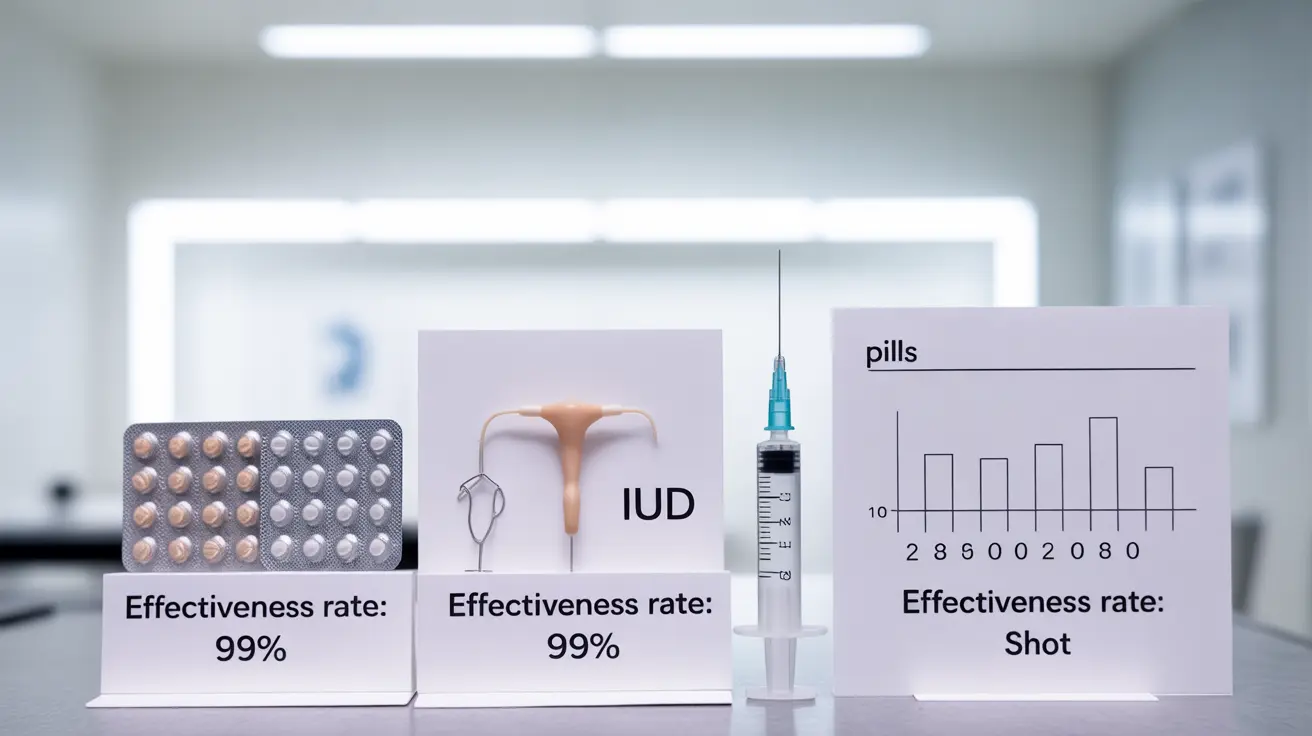Understanding birth control effectiveness, particularly during internal ejaculation, is crucial for making informed decisions about sexual health and pregnancy prevention. While various birth control methods offer different levels of protection, it's essential to know how they work and what factors might affect their reliability.
This comprehensive guide explores the effectiveness of different birth control methods, what to do if something goes wrong, and how to ensure maximum protection against unplanned pregnancy.
Understanding Birth Control Effectiveness Rates
Birth control methods vary significantly in their effectiveness rates, especially when considering perfect use versus typical use scenarios. Perfect use refers to using the method exactly as directed, while typical use accounts for human error and inconsistency.
Hormonal Birth Control Methods
Hormonal birth control options, when used correctly, are highly effective at preventing pregnancy, even with internal ejaculation:
- Birth control pills: 99% effective with perfect use, 91% with typical use
- Hormonal IUD: More than 99% effective
- Birth control shot: 99% effective with perfect use
- Birth control implant: More than 99% effective
Non-Hormonal Methods
Non-hormonal options also provide varying levels of protection:
- Copper IUD: More than 99% effective
- Diaphragm: 94% effective with perfect use
- Cervical cap: 86% effective with perfect use
Factors That Can Reduce Birth Control Effectiveness
Several factors can compromise birth control effectiveness:
- Missed or late doses
- Medication interactions
- Illness causing vomiting or diarrhea
- Improper storage of birth control
- Not following proper timing guidelines
What to Do If Birth Control Fails
If you suspect your birth control may have failed or wasn't used correctly, there are several steps you can take:
- Consider emergency contraception within 72 hours
- Contact your healthcare provider for guidance
- Monitor for early pregnancy symptoms
- Schedule a follow-up appointment if needed
Emergency Contraception Options
Emergency contraception can be effective when taken promptly after unprotected intercourse or birth control failure:
- Plan B (morning-after pill): Most effective within 72 hours
- Ella: Effective up to 120 hours after unprotected sex
- Copper IUD: Can be inserted up to 5 days after unprotected sex
Frequently Asked Questions
How effective is birth control at preventing pregnancy if ejaculation happens inside the vagina?
When used perfectly, most hormonal birth control methods are 99% effective at preventing pregnancy, regardless of whether ejaculation occurs inside the vagina. However, typical use effectiveness rates may be lower, around 91-94%.
Can I still get pregnant if I miss birth control pills and my partner ejaculates inside me?
Yes, missing birth control pills significantly increases your risk of pregnancy, especially if ejaculation occurs inside the vagina. The risk varies depending on when in your cycle you missed the pills and how many were missed.
Does the type of birth control affect pregnancy risk when having sex without a condom?
Yes, different types of birth control have varying effectiveness rates. Long-acting reversible contraceptives (LARCs) like IUDs and implants offer the highest protection, while methods requiring daily attention, like pills, have more room for user error.
What should I do if my partner ejaculates inside while I forgot to use birth control correctly?
Take emergency contraception as soon as possible, ideally within 72 hours. Contact your healthcare provider for guidance, and consider using backup contraception until your regular birth control becomes effective again.
How soon should emergency contraception be used after unprotected sex to prevent pregnancy?
Emergency contraception is most effective when taken as soon as possible after unprotected sex. Plan B works best within 72 hours, while Ella remains effective up to 120 hours. A copper IUD can be inserted up to 5 days after unprotected sex for emergency contraception.




